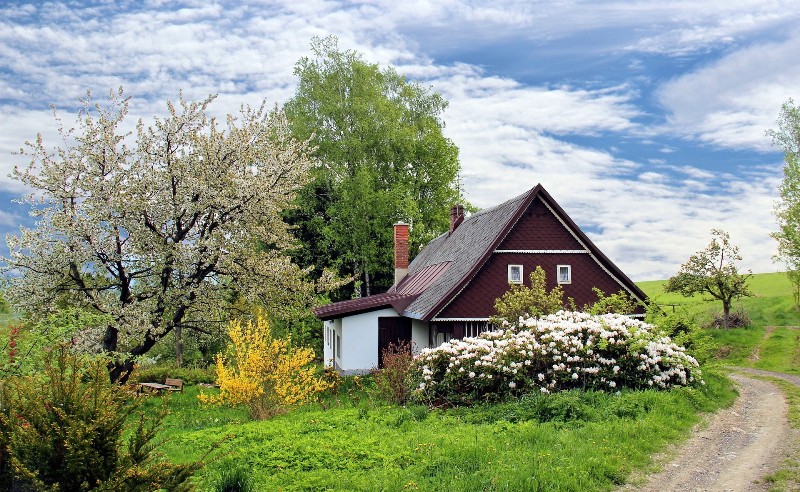
Home. A concept revolving around the idea of a place where we live. It is often defined, permanent, and singular. The idea of “home” is intertwined throughout our everyday life; as we meet new people we ask, “where are you from?” or “where abouts do you live?” It’s a simple enough question but becomes complicated when home is not defined.
A missionary kid
Growing up as a Missionary kid (MK) the idea of home was skewed, the question “where are you from?” which is usually attached to a singular location, was more difficult to answer. I was born in the USA where my dad is from, I lived 6 years in Afghanistan, and my mum is Australian.
Where is home?
Where am I from?
In today’s world where travel and overseas moves are more frequent than ever, the idea of home is becoming more and more fluid. However, the concept of a single home is still common. As aforementioned, my background is more complicated than most.
As a family we travelled more than most: we alternated between the US, Australia and Afghanistan each Christmas; we would travel for conferences with other missionaries; visiting family and touching base in the US was also a regular part of life; we would also take time out due to security reasons.
This travel has amounted to me visiting 31 different countries, 35 different US states, as well as having lived in three countries. This amount of travel put into perspective cultural differences, fostered empathy, and allowed for my worldview to be widened considerably. Along with this, however, there has always been a disparity between myself and the location I was living in.
Feeling lost
Our family’s move permanently to Australia in 2009 was an odd adjustment. My sister and I were used to a life of constant movement, of instability and then were thrust into a place of permanence. The first few years living here there was always a sense of insecurity, that at some point we would move again or things in our life would slip away; despite the perception of permanence, there was none (seemingly).
As I grew older the uniqueness of my family’s experience became more obvious to me, but with that came understanding. An understanding of the idea of home and what it means to me. Over the years I have often felt isolated and misunderstood by my friends and peers. I didn’t truly know where I was from and when asked it was complicated to explain.
As I would briefly lie out the story of my life, I felt insecurity with it, as if the person asking was not expecting the depth of. With my accent people assumed I was American, but I didn’t feel fully American or Australian, and I am not from Afghanistan and yet it was such a significant part of my life.
I felt truly lost, a feeling not uncommon for repatriated MKs. For years I would always refer to home as the US or Afghanistan, as I grew roots in Australia, I began to call Australia home. But there was still that question in my heart of: “where am I from?”
Finding home
Home is linked to place, which is inherently linked to belonging. That was a realisation I came to last year doing research on Third Culture Kids for a school assignment. In this I truly discovered that because home is linked with belonging, we cannot fully define home as an earthly thing.
Over the years there has been a great longing wherever I am for the other places. A certain song, a familiar smell, a distinct look of a place or the taste of specific meals would send me reeling into a restless place of nostalgia and longing for other places I’ve been. Wanderlust as some call it.
Amidst that yearning one day, as I was putting together a playlist of nostalgic songs from my childhood, I had an epiphany of how this same longing I had for travel and adventure was the familiar longing I have for our heavenly Father. I don’t think we should ever be comfortable just knowing God; it is a lifelong journey of discovery and rediscovery of Him and who he is. What comes to mind as I think of this is Jeremiah chapter 29:13: “You will seek me and find me, when you seek me with all of your heart.”
We should be hungry for wanting to know God in every aspect of our life, just as we have a hunger for identity and knowing ourselves. As we search for these things, we often find ourselves within him. Too often we are quick to define ourselves in physical places, in people’s opinions of us, we are caught up in the world. In those moments we need to remember our heavenly home.
When we feel disconnect from our earthly world in times of loneliness and isolation, there should be an action in seeking solace in “the City that is to come” (Hebrews chapter 13 verse 4).
We can’t forever be defined by our physical environment, but instead should find identity, belonging, comfort, support, relationship and home in Jesus. In this, while at times a hopeless nostalgic and torn between three homes, I found home in Him.
 Hope Pratt is an American Australian starting my first year at University. My family and I lived in Afghanistan for 6 years before moving to Australia. I am currently living in Sydney, which has been my longest home yet.
Hope Pratt is an American Australian starting my first year at University. My family and I lived in Afghanistan for 6 years before moving to Australia. I am currently living in Sydney, which has been my longest home yet.

Hope Pratt is an American Australian starting my first year at University. My family and I lived in Afghanistan for 6 years before moving to Australia. I am currently living in Sydney, which has been my longest home yet.